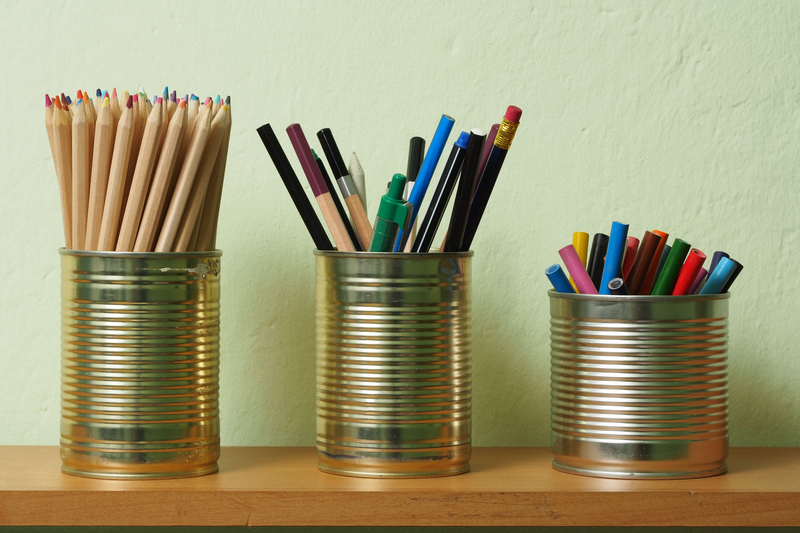Your Ultimate Guide to Hard Rubbish and Disposal Techniques
Managing household waste is a crucial responsibility for every homeowner. While some items are easy to dispose of, others, like hard rubbish, present a unique set of challenges. In this comprehensive guide, we'll explore effective methods for hard rubbish disposal, ensuring you do your part to protect the environment.
What is Hard Rubbish?
Hard rubbish refers to bulky household waste items that are not easily disposed of with regular waste collection services. These can include:
- Furniture: Sofas, chairs, tables, and other large items.
- Appliances: TVs, refrigerators, washing machines, and microwaves.
- Electronic waste (e-waste): Outdated computers, printers, and other electronic devices.
- Mattresses and bed frames: Typically difficult to compress or break down.
- Renovation and construction waste: Items like tiles, bricks, and timber.
These items are often cumbersome to handle and require specific disposal methods to prevent them from ending up in landfills.

Why Proper Disposal is Essential
Proper disposal of hard rubbish is crucial for several reasons:
- Environmental Protection: Reducing landfill contributions minimizes soil and water contamination.
- Resource Conservation: Many hard rubbish items can be recycled, conserving valuable resources.
- Health and Safety: Improperly discarded items can pose hazards to people and wildlife.
Effective Hard Rubbish Disposal Techniques
1. Council Collection Services
Most local councils offer hard rubbish collection services either free or for a small fee. Here's how you can take advantage of these services:
- Check Availability: Verify if and when your council offers hard rubbish collection.
- Understand the Guidelines: Each council may have specific rules regarding what can be collected.
- Schedule a Pick-up: Book a collection in advance to ensure timely disposal.
- Prepare the Rubbish: Make sure your items are ready on the designated collection day, following any sorting or packaging requirements.
2. Use of Recycling Centers
Recycling centers are an excellent option for disposing of hard rubbish responsibly:
- Locate Centers Nearby: Identify recycling centers in your area that accept hard rubbish items.
- Sort Your Items: Pre-sort waste into categories like e-waste, metals, and plastics for hassle-free recycling.
- Understand Drop-off Guidelines: Follow the center's rules for drop-offs to avoid any inconvenience.
3. Donate Usable Items
If your hard rubbish items are still in usable condition, consider donating them:
- Charity Organizations: Many organizations accept furniture and appliances in good condition.
- Local Shelters: Some shelters need items for setting up accommodations.
- Community Exchanges: Utilize platforms that facilitate free exchanges of goods within your community.
4. Professional Junk Removal Services
If you're dealing with a particularly large lot or lack the means to transport rubbish, professional services are available:
- Convenience: Companies provide pick-up and disposal services at your doorstep.
- Time-Saving: These services can quickly clear out large volumes of waste.
- Eco-Friendly Practices: Reputable companies focus on recycling and responsible disposal.
5. DIY Disposal Methods
If you're equipped and inclined, you can manage some disposal tasks yourself:
- Upcycle or Repurpose: Convert items into something new or find a creative use.
- Break Down Items: Disassemble large items for recycling or easier disposal.
- Transport to Landfill: If no other options are available, responsibly transport items to a landfill.

Understanding Regulations and Restrictions
Familiarize yourself with local rules and constraints to ensure compliance:
- Permit Requirements: Some areas may require permits for certain disposals.
- Prohibited Items: Check for any restrictions on hazardous waste or specific materials.
- Fines and Penalties: Be aware of potential penalties for non-compliance with regulations.
Conclusion
Dealing with hard rubbish requires an informed approach to ensure it's handled safely and responsibly. By utilizing available services, understanding regulations, and considering recycling or donation, you can effectively manage hard rubbish while contributing to a sustainable environment. Remember, every action counts towards a greener future.